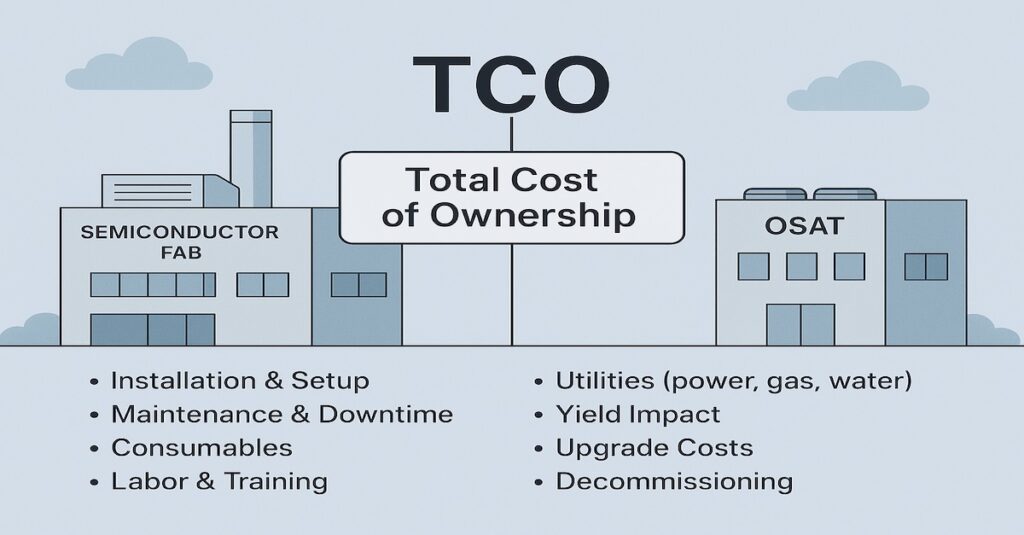Image Generated Using DALL-E
What Are Semiconductor Custom Chip
Semiconductor custom chips, also known as application-specific integrated circuits (ASICs), represent a specialized category of electronic components designed to perform specific functions or tasks within electronic devices.
Unlike general-purpose chips that can run a wide range of applications, custom chips are engineered for a particular application or product, offering optimized performance, power efficiency, and often reduced size compared to their off-the-shelf counterparts.
These chips are tailored to meet the unique requirements of a project, including specific computational tasks, signal processing, or control functions, making them indispensable in industries such as telecommunications, automotive, consumer electronics, and increasingly in emerging technologies like IoT (Internet of Things) and AI (Artificial Intelligence).
The design and fabrication of custom chips involve a collaborative process between the chip designers and manufacturers, ensuring that the final product precisely matches the functional and operational specifications of the intended application.
Integration Of AI And Semiconductor Custom Chip
Lately, the AI industry is realizing the potential of these custom chips, and below are the main reasons:
| ASPECT | CONNECTION |
|---|---|
| Optimized Performance | Designed specifically for AI workloads, offering faster data processing and efficient execution. |
| Energy Efficiency | Engineered for minimal energy consumption, crucial for mobile and edge computing AI applications. |
| Tailored Hardware Acceleration | Incorporate accelerators like TPUs for improved speed in AI computations, enabling real-time processing. |
| Flexibility And Scalability | Allows integration of various AI functionalities, adaptable to evolving computational demands. |
| Cost-Effectiveness | Optimizes hardware for specific tasks, reducing unnecessary components and lowering production costs. |
| Enhanced Security | Incorporates security features to protect AI data and algorithms, critical for sensitive applications. |

Why The Race For Custom Chip Is Only Getting Started
Several compelling reasons drive the race among AI software companies to build custom chips, and indications suggest that this competition is only gaining momentum due to the rapidly evolving landscape of artificial intelligence and machine learning.
Here are the primary factors fueling this race:
| REASONS | EXPLANATION |
|---|---|
| Demand For Higher Computational Power | AI models’ growing complexity necessitates chips capable of efficient, high-speed data processing to enable advanced applications. |
| Energy Efficiency | Custom chips are optimized for lower power consumption, essential for mobile and edge computing AI applications, to extend battery life and reduce operational costs. |
| Competitive Advantage | Tailoring hardware to specific needs offers performance, capabilities, and cost benefits, providing a competitive edge in various sectors. |
| Reduced Dependence On External Suppliers | Developing in-house chips reduces reliance on third-party manufacturers, offering more control over supply chains and potentially lower costs. |
| Innovations In AI Require Tailored Solutions | Emerging AI algorithms and models need specific hardware features, making custom chips vital for supporting proprietary technologies. |
| Latency Reduction | Custom chips enable on-site data processing in edge devices, facilitating real-time decision-making crucial for applications like autonomous driving. |
| Increased AI Accessibility | By making AI solutions more affordable and energy-efficient, custom chips help democratize AI technology, fostering innovation across numerous sectors. |
The race for custom chips, particularly in artificial intelligence (AI), is burgeoning at an unprecedented pace, driven by the insatiable demand for more powerful, efficient, and specialized computing solutions. This surge is not merely a trend but a fundamental shift in how technology ecosystems evolve to meet the intricate demands of modern applications and services.
How Semiconductor Industry Will Benefit From AI SoC Chip Race
As we stand on the cusp of technological innovations that demand tailored computational capabilities, the race for custom chip development is only gaining momentum. It promises to reshape industries, foster new levels of innovation, and redefine the competitive landscape, ensuring the journey toward more advanced, application-specific integrated circuits (ASICs) is just beginning.
Below are the major benefits:
| BENEFITS | EXPLANATION |
|---|---|
| Increased Demand For Advanced Semiconductors | Rising needs for custom AI chips boost production volumes and drive technological advancements in semiconductor manufacturing. |
| Innovation And Technological Advancements | The specific requirements of AI applications incentivize the development of new chip architectures, manufacturing techniques, and materials, propelling industry-wide technological progress. |
| Diversification Of Revenue Streams | Custom AI chips open up new markets, allowing semiconductor companies to cater to a diverse customer base and reduce reliance on a few large clients, enhancing financial stability. |
| Partnerships And Collaborations | The complexity of AI chip production encourages collaborations between semiconductor firms and AI companies, leading to shared R&D and co-development of technologies, fostering a more integrated supply chain. |
| Global Market Expansion | The worldwide spread of AI technologies necessitates investments in global supply chains and manufacturing capabilities, allowing semiconductor companies to tap into new regional markets. |
| Enhanced Manufacturing Capabilities | Producing custom AI chips requires semiconductor manufacturers to adopt advanced fabrication technologies and improve production efficiencies, benefiting the broader manufacturing capabilities of the industry. |
| Workforce Development | The demand for skilled personnel in R&D, manufacturing, and testing of custom AI chips encourages the industry to invest in developing a talented workforce, promoting a culture of innovation. |
| Regulatory And Policy Engagement | The growing recognition of semiconductors’ importance in national security and economies opens opportunities for the industry to engage with governments on supportive policies and regulations, enhancing industry resilience. |
Furthermore, the competitive landscape of the tech industry is another catalyst propelling the race for custom chip development. Companies seek to differentiate their products and services by leveraging the unique capabilities that custom chips offer, such as reduced latency, enhanced data privacy, and the ability to perform sophisticated AI tasks at the edge of networks.
This differentiation is crucial in industries where performance and efficiency can directly impact user experience and operational costs, such as cloud computing, consumer electronics, and automotive technologies. Thus, reigniting the race to make better custom chips.






